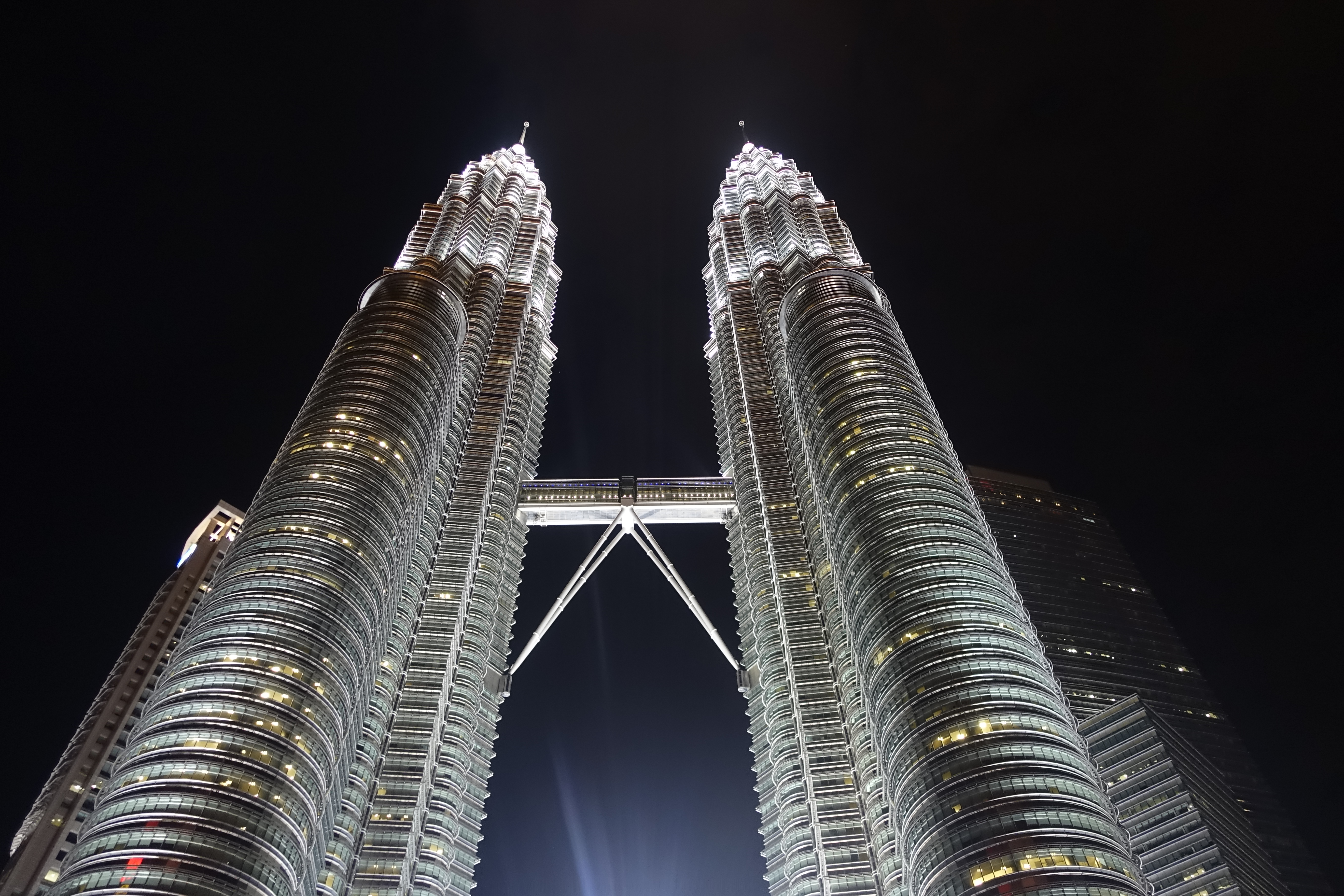Kuala Lumpur, Malaysia (photos)
Malaysia’s tourism slogan is “Truly Asia,” which is meant to encapsulate the way that Malaysia brings together so many different varieties of Asian life: Chinese, Austronesian, South Asian; Muslim, Hindu, Buddhist. The downside of the slogan is that it can leave you wondering, if you’re already going to other parts of Asia, why you need to come to this country at all.
At times, the ethnic mix works well. It gives you delicious foods and a sense of energy and possibility. At other times, it combines in unfortunate ways: you get the Chinese sense of personal space (none), the Indian approach to salesmanship (yelling at passersby), and the Southeast Asian concept of sidewalks (non-continuous surfaces full of holes).
The language, too, is a fascinating pidgin. The underlying Malay is an Austronesian language, but it’s full of loanwords from English and Arabic and Hindi, all written in a peculiar romanization that spells everything rationally. So you get words like menara for tower, from the Arabic, and also words like butik and restoran, teksi and bas, polis, klinik, and so on. (Weirdly, the word for eating is makan*, which sounds a lot like meok-da, the Korean word for eating, but I don’t know if that’s a real cognate.)
Muslims and Indians and Ewoks
Today I went to the Petronas Towers and felt a twinge of resentment that this Muslim country still has its twin towers and New York City doesn’t.
This is my first time in a Muslim country. The closest I’ve come is India, which is a secular country with an enormous number of Muslims and some legal recognition of Islamic family law. But this is different. Malaysia is multiethnic and multireligious, a point that official Malaysian tourist information makes repeatedly, and Hindu and Chinese temples are a part of the cityscape, as are endless Christmas displays. Still, I have been warned by several people not to mention that I’m Jewish — always followed by the caveat that it’s fine with the Chinese and the Indians, but just don’t mention it to the Malays. Like all the other Muslim countries, Malaysia has no diplomatic ties with Israel, and Israelis can’t travel here. Walking a side street in the tourist center of Bukit Bintang, I saw a Nazi swastika tank top for sale. Multiethnic, multireligious tolerance has its limits. (It’s also worth noting that though Malaysia is far more tolerant and openminded than, say, Saudi Arabia, it’s still a Muslim country whose most famous emblem is a tower built by the national oil company, Petrolium Nasional Berhad.)
Along with its Muslim side, Kuala Lumpur also has a strong Indian presence, which makes it much more like India than the other parts of East Asia I’ve been to, often in distressing ways: more yelling, more hawking, more beggars displaying horrific disease and injury.
And I keep thinking that the Malay women, short and round-faced in headscarves, look like Ewoks.
KL is just OK
To be fair, there are nice parts of the city. The malls are elegant and vast and there are multitudes of them. Last night I met up with a Chinese Malaysian friend in Bangsar, a stylish neighborhood of cafes and bars for the upper-middle class. And on my first night in town, I was welcomed into a lovely home and fed delicious, home-cooked roti canai and other delicacies by the large Indian Malaysian family of a friend from Landmark in New York.
But I haven’t found KL to be especially appealing. It’s a car city, and I don’t tend to like car cities. The people I’ve met directly have been lovely, but merchants and shopkeepers and passersby have been taciturn. The mix of wealth and poverty, development and decay, is messy and uncomfortable.
It’s also hard to write off the bad vibes that come from the anti-Semitism. I’m lucky to have been born in America at a time when anti-Semitism was rare and socially unacceptable; being here, I’m reminded of how often, and in how many places, casual hatred of Jews has been the norm.
And yes, people are right say that the food is great, but I’m discovering that that’s a thing you say about places where there’s not much else good to say about them (Singapore, I’m looking at you). There’s a lot of good food, but that was true in Bangkok and Saigon and New York too. There’s just more to say about those cities.
On beyond Kuala
Tomorrow I’ll venture beyond the capital, south to Melaka/Malacca, a historic port city. It will be interesting to see how Malaysia feels outside of Kuala Lumpur, and good to give it a chance.
Still, I have already come to the sad sense that whatever possibilities exist for me in Southeast Asia, Malaysia is not somewhere I’ll ever feel wholly welcome.
*Originally I had it as makar.

